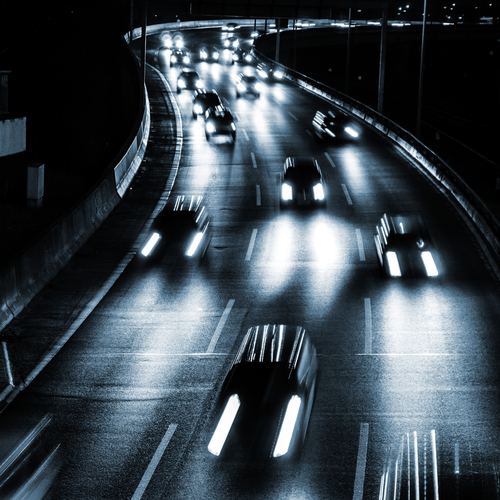Dr. Mark Whitten discusses night time vision with The Lexington Park Leader
September 24, 2014

Night Vision Declining? Time for An Eye Checkup
You might first notice a change in your eyesight, after we change the clocks for fall, when you get behind the wheel for the drive home from work. As the sun sets earlier, we start spending more time driving in the dark.
Do you find that the road markings and signs are a little less clear now? Is glare from oncoming vehicle lights making it harder for you to see? And how close were you to that deer on the side of the road before you could see it?
It’s not unusual to have less visual precision when driving at night – nearly a third of drivers say they do. But if you are seeing less well during nighttime driving, it could be a sign that you need a comprehensive vision exam to pinpoint what is causing your vision to be less sharp – and to keep your driving safe, says Dr. Mark Whitten, of TheWhitten Laser Eye Center in Charlotte Hall, Maryland, south of Washington D.C.
For most people, a fix could involve a change to an existing vision correction prescription, says Dr. Mark Whitten, or just be a matter of giving your eyes time to adjust to the low light before driving off. In low light, the pupils in the eyes dilate, causing vision to become blurred and making focusing more difficult.
For drivers concerned that their nighttime vision is changing, WebMD has catalogued some of the factors that can affect night driving, including these:
Aging can be a factor, according to Dr. Mark Whitten. Decreased night vision, and seeing “halos” around lights, which amplifies their brightness and size, can be a sign of cataracts developing. Glare from oncoming vehicle headlights, and from the sun reflecting off windshield and other surfaces, can be especially challenging for older drivers. The AARP offers a Driver Safety Course with helpful tips on how senior drivers can make adjustments to their driving that will extend their years of driving freedom.
Some young people can be vulnerable as well, Dr. Mark Whitten says. Worsening night vision is often the earliest symptom of retinitis pigmentosa. It’s an uncommon genetic disorder affecting young people, usually before age 30.
Dr. Mark Whitten additionally warns that people with diabetes are at higher risk for declining night vision. Over time, high blood sugar levels affect the eye’s blood vessels, gradually damaging the retina. An early sign of retina damage from diabetes is poor night vision.
The sun we hate to see set so early can be a culprit, too. Sustained bright sunlight such as you might experience after a couple of days on a sunny ski slope or a winter vacation in the tropics can impair night vision for a day or two. Always wear protective eyewear in bright sunlight, suggests Dr. Mark Whitten.
If you find yourself less confident when you’re on the road at night, get in touch with us at Whitten Laser Eye and schedule that eye exam. Now that the long nights are back, it’s a matter of your health and safety — and that of the drivers around you.



